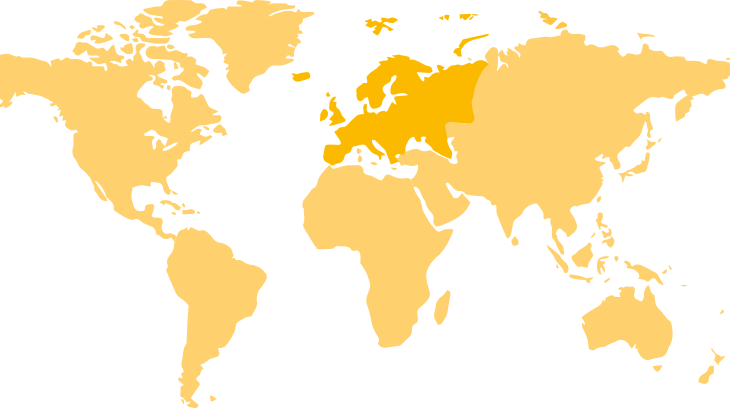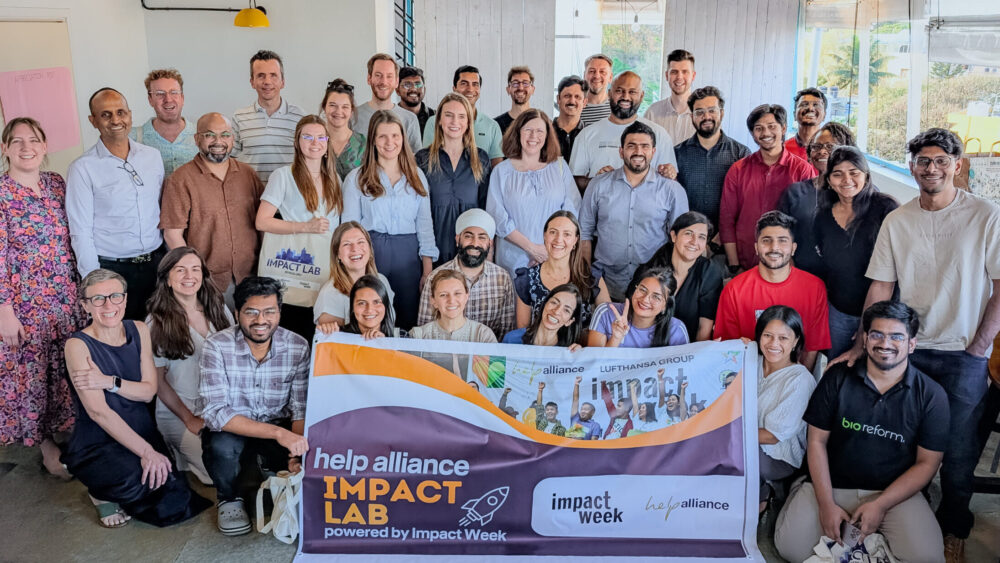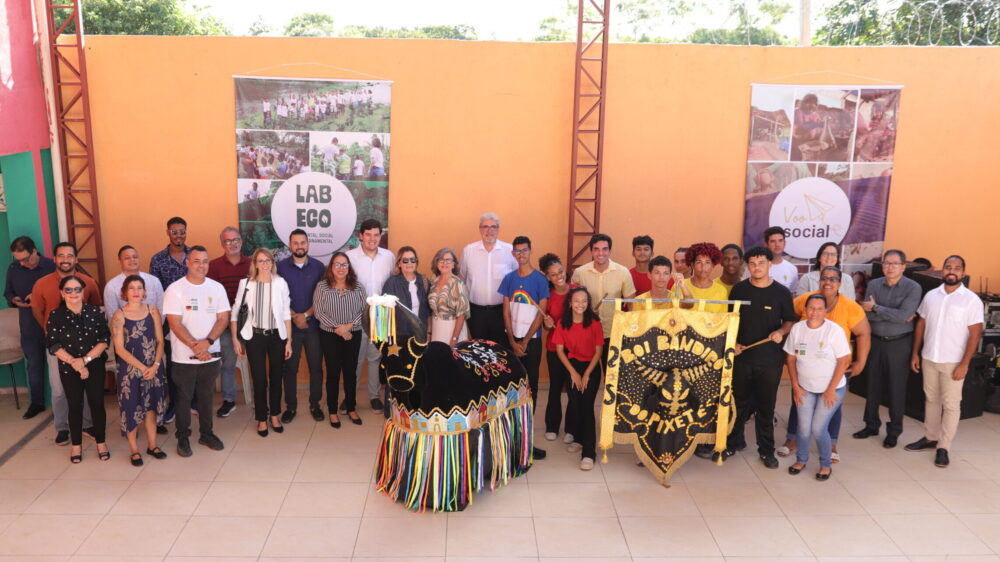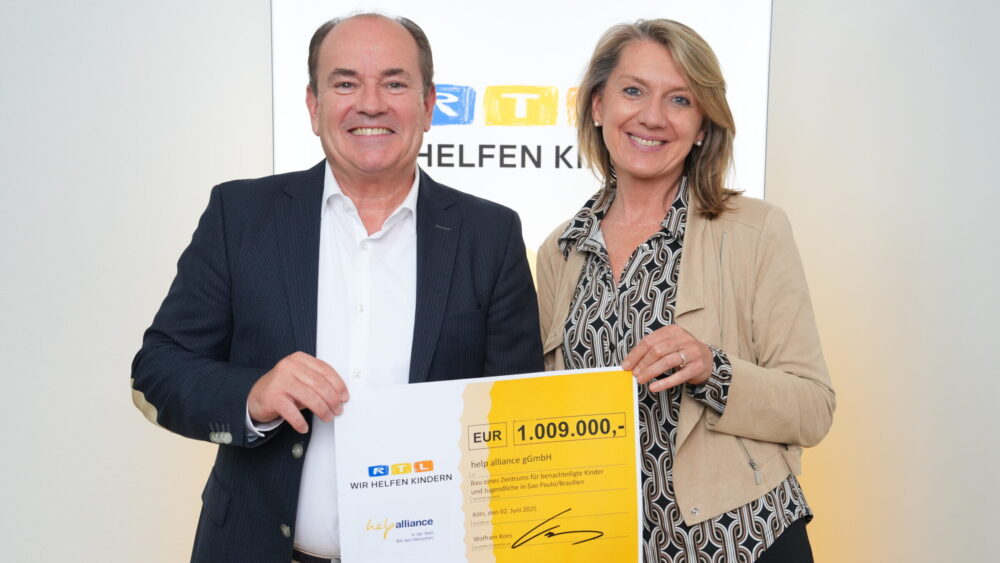
“This is now more than just a language course”
Interview with Klaus Fuchs
Klaus Fuchs, retired Lufthanseat, friend of help alliance and committed language teacher for refugees tells how he came to help alliance and what great experiences he had.
What did you do at Lufthansa?
I have been retired since 01.12.2015. Before that I was in the simulator department. Together with two other colleagues I was responsible for training and the training process as well as flight training for A320 and B737.
How did you join the help alliance?
There were two parallel reasons.
As a German – born in Brazil – I informed myself on the homepage about the project Seara in Santarem in Brazil and supported it financially as a supporting member. Three years ago I visited the project on site and convinced myself of the correctness and importance of the money. I was also impressed by the way help alliance helps.
The second reason was my heart attack in 2010, from which I almost never recovered. I simply wanted to give something back. So I thought that making money is not everything and that I would like to get socially involved. As an Lufthansa employee, help alliance was the obvious choice.
How did you hear about help alliance in the first place?
Through flyers and through the films on board while flying. Also the occasional contributions in the “Lufthanseat” convinced me.
You are now involved as a language teacher for refugees in Frankfurt’s Ostend district, how did this come to be?
Through help alliance I went to an event about how to help refugees. There I had contact to the “Teachers on the Road”. But they were completely overloaded and already had enough teachers for the Ostend area. The areas Gutleut and Fechenheim were just being built up. Because they got so many inquiries, they didn’t even have time to answer all mails. I called the office in Ostend again and they gave me a tip that Elke Spichalski from the Ostend Neighborhood Center is organizing a meeting for refugees to learn German.
Together we designed the flyers and word spread quickly. We could observe a large increase. The refugees who came, also come again and again.
However, we noticed that our means were limited, so I turned to help alliance and asked for financial support. I then submitted a project application and got it approved.
What are the best experiences you have had so far?
Quite clearly: The gratitude of the people. When you see that you design your lessons in such a way that the students, who are actually all adults, want to continue independently.
Some of them come from Niederrad with used bicycles just to take part in the German course. Also from the Gutleut, Bornheim and Ginnheim students come regularly.
We have started in November 2015. In the beginning there were only three or four people. In the meantime 15 to 20 people come regularly. The main groups are people from Syria and Eritrea, followed by Afghanistan and Iran.
When so many different cultures come together, aren’t there problems?
The sense of community is great. The contact with each other is harmonious and peaceful. Due to language barriers, they speak German with each other to communicate.
This is now more than just a language course. We also help with many other problems.
What problems do the young people have to deal with?
The biggest problem is of course that there is war at home. And here they wait a long time for their work permit. That means they can only sit around and wait, even though some of them have excellent degrees and due to the German bureaucracy are not able or allowed to work. The other problem is of course the language. I always give the tip that they should speak German among themselves and watch German television to get the sound of the language in their ears.
What would you recommend to someone who wants to get involved in social work?
Be aware of what you do and why you do it. To be willing to sacrifice time for it for some time and not feel any compulsion to do so. You can stop at any time. It gives you the opportunity to think outside the box and see how other people are doing. Just by talking to the people, so many individual fates are made present, which otherwise you would not have experienced. If someone wants to do something social, then you can find something. Just open your eyes.
When you talk about individual destinies, I can imagine that there are many unpleasant things involved. How emotionally stressful is what you do?
I only let things come close to me up to a certain point. That’s when I benefit from the experience I gained in the SAT Team – the Special Assistance Team – at Lufthansa. A lot of what I learned there I can use today.
Now a question that makes many people think a little longer: What have you learned about yourself through your commitment?
I don’t need to think long. I can simply quote the first article of the German Constitution: ” The dignity of men is unimpeachable.” With little means you can give other people a lot of pleasure and thus facilitate their integration and what is very important is to speak proper German right from the start. But this is also part of it: Conveying our own values without being offensive and not giving up our culture, but making it transparent.



